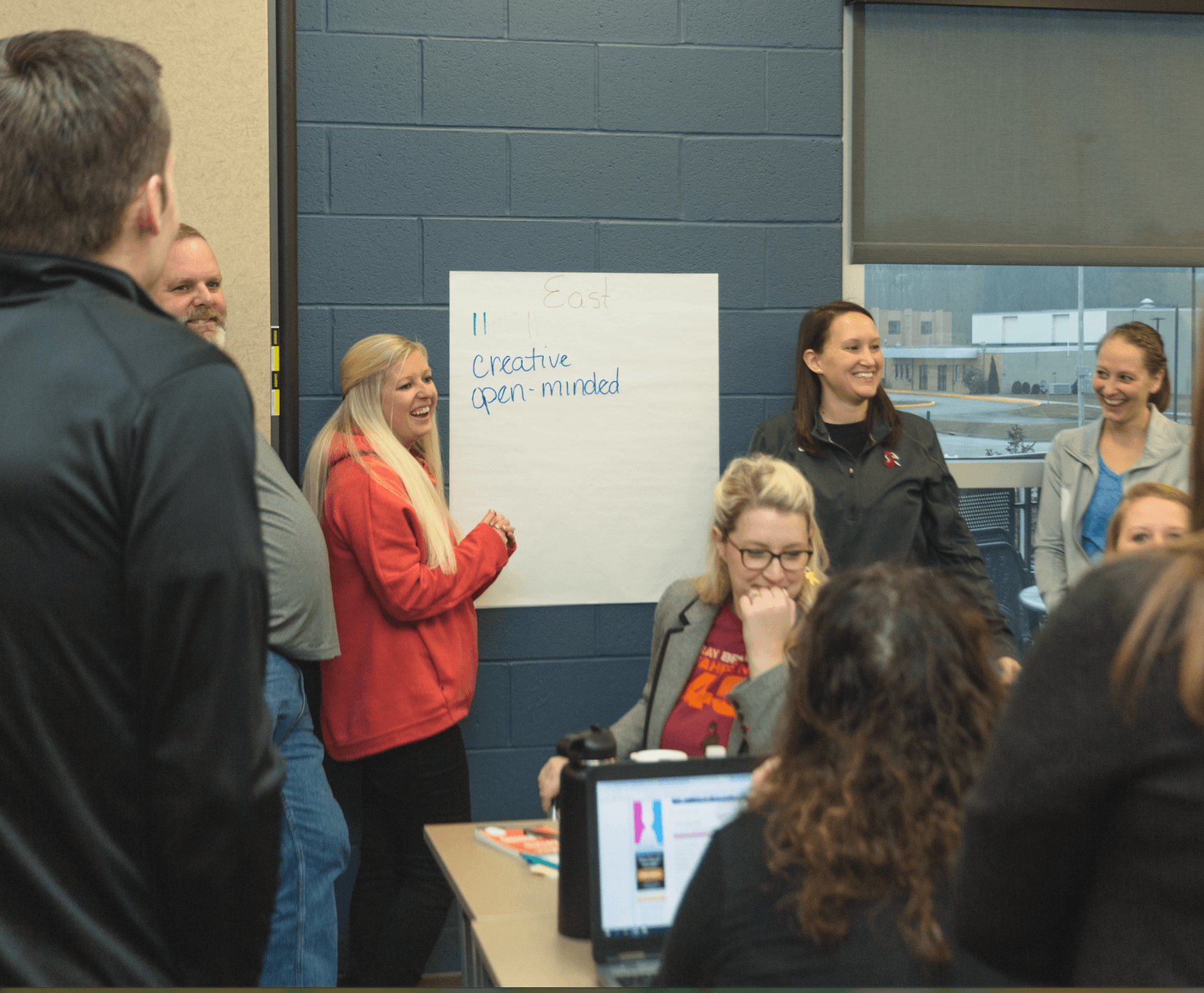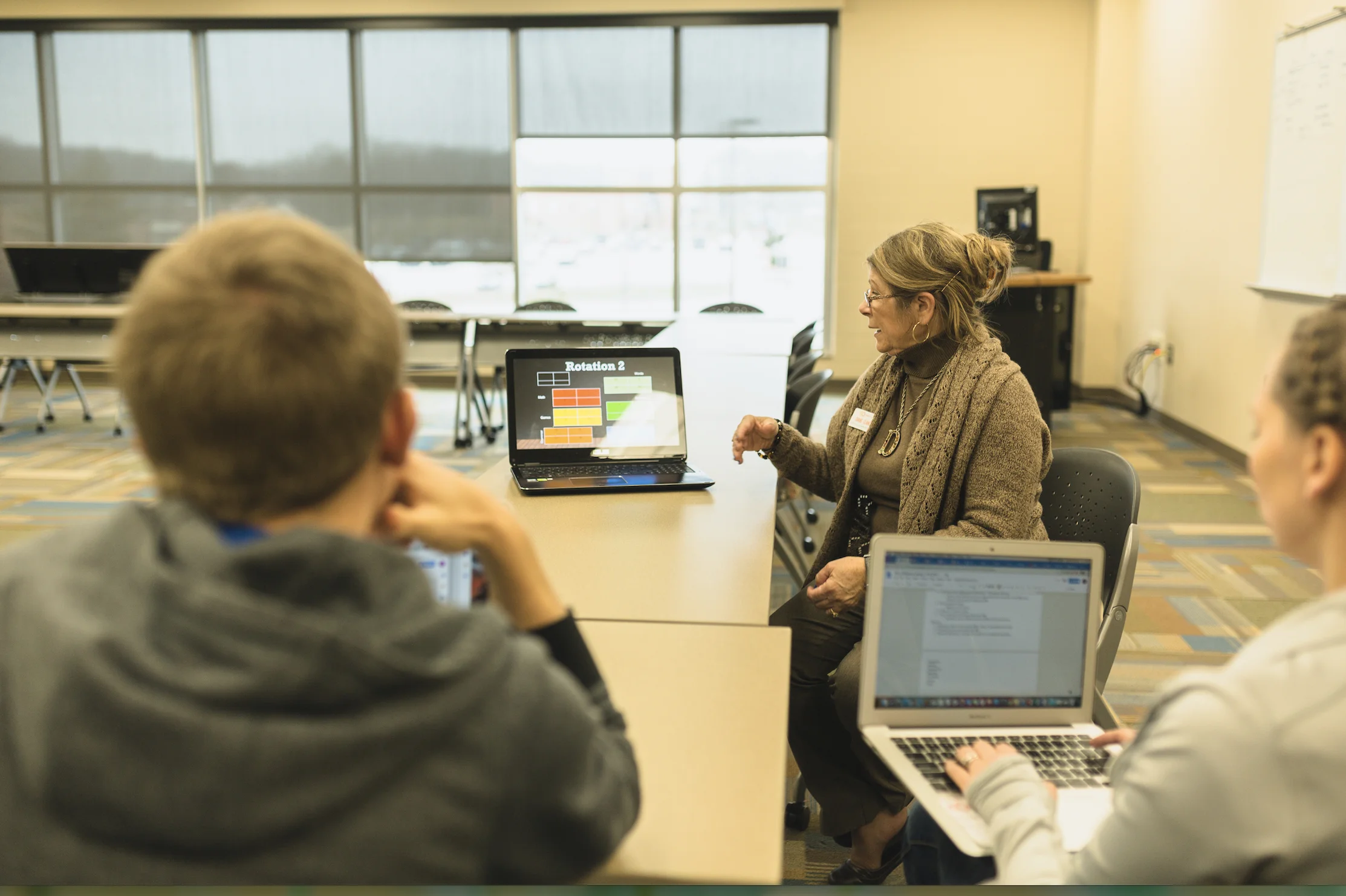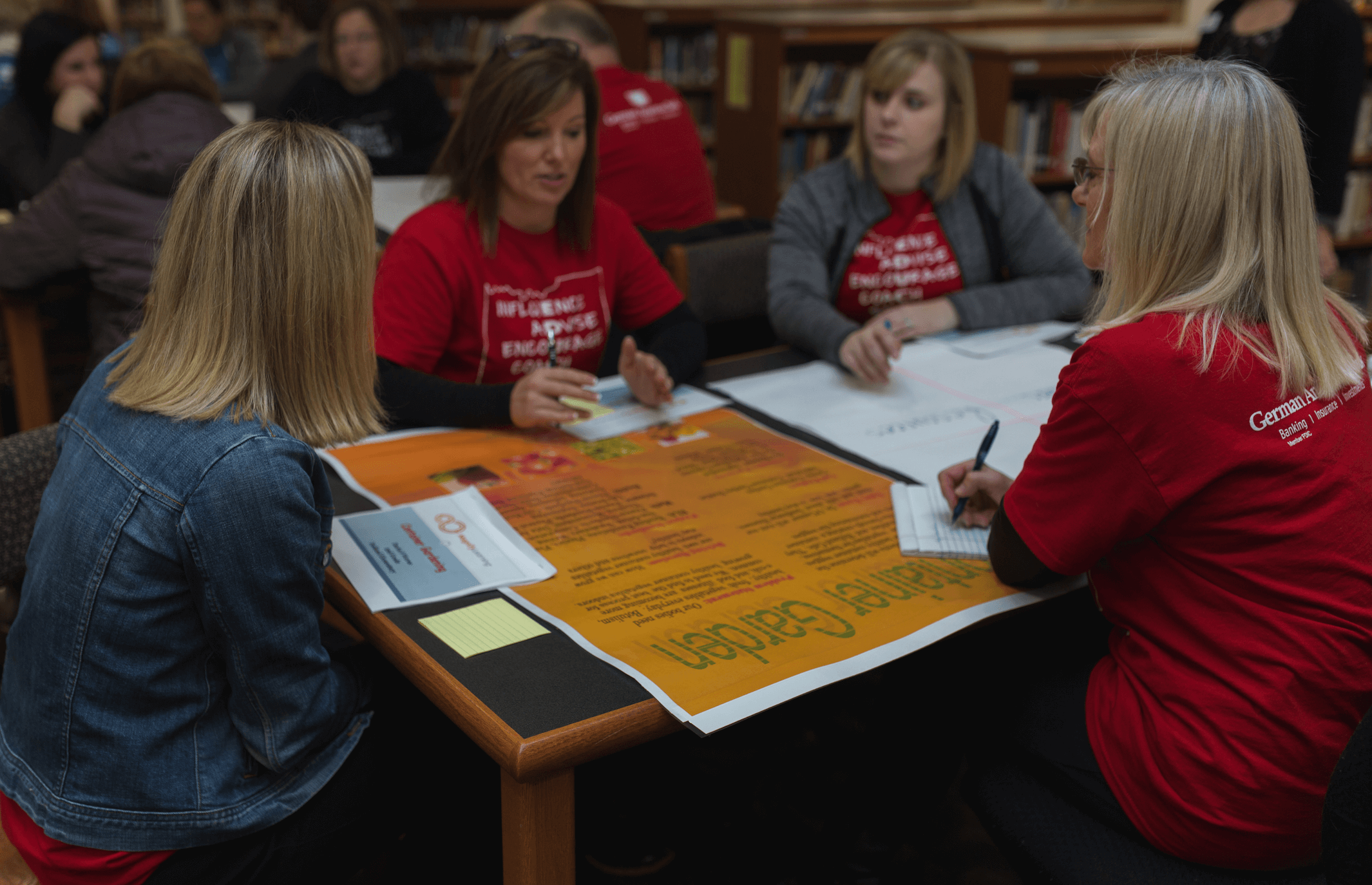Back to Project Based Learning Blogs
Andrew Larson
Columbus Signature Academy New Tech High School
Columbus, IN
It wasn’t that long ago that it was -5 degrees outside (or at least it felt like it for months), so ask yourself this: are you ready for the summer? My guess is that if you are reading an educational blog right now, you are probably also thinking about your next educational aspirations. We hope those aspirations include taking a Project Based Learning journey with us. Please navigate over to the Magnify Learning website for information or to register for a Project Based Learning Workshop.
If you have already decided to attend a PBL workshop this summer, ask yourself these questions now. And don’t just ask them; answer them as well. If you feel like it, write those answers down.
1. How do you view your role in the classroom? If you come to a Magnify Learning workshop, you will be greeted by your friendly facilitators, whose job is to guide you through a process of discovery about Project Based Learning. Yes, it is true that they will teach you everything they know about best practices on the topic of PBL, including how to structure a PBL unit, scaffold student learning, assess student progress, and manage group dynamics. They will refer to themselves as facilitators and not “teachers” or “trainers” because that is how they view their role. The definition of facilitation is to make something easier than it would otherwise be, and that is how PBL educators come to see their role (both in trainings and in their own classrooms.)
It should be pointed out, though, that both in your training and in classrooms full of students, there will always be a healthy blend of instruction from the teacher (who will henceforth be referred to as the facilitator), collaborative learning, individual research, and exposure to all modalities of learning that will be relevant in students’ futures. You may consider recording your instruction or asking a colleague to observe and take notes during your class in advance of the training, with a specific focus on your role in the classroom: are you the focal point, or more of a facet? Both roles are appropriate for a PBL facilitator, though at different times, and in different ways.
Some educators have a false construct of PBL as an environment where we give up control and students are free to explore in an unstructured, noisy and chaotic environment. This is by no means how your facilitators will expect you to proceed with students once your training is complete. While it is true that PBL thrives when the learning environment is flexible and when the instructor encourages interdependent learning, and yes, it will probably be a bit noisier at times than a traditional classroom, it is very structured, overall. So if learning to facilitate PBL is a goal of yours, but you are not sure what that looks like in a project-based room, then carry on!
2. How comfortable are you with not having all of the answers? The workshop itself will be a project; this is by design. Your facilitators want you to feel what your students will feel. This will be uncomfortable at times, especially on the first day. You may feel overwhelmed and there will be moments when you think (or say), “Why don’t you just tell us what to do (or how to do it)?” Naturally we know that students have these thoughts and say these things, but do you answer them? Probably not. In all seriousness, though, your facilitators will not have all of the answers, especially as they pertain to your specific school environment.
Your PBL facilitators do the same things that you do with your students: they take content knowledge, get it in the hands of the learners, and ask them to apply that knowledge in new ways (such as developing a PBL unit that will work in your classroom, and with your students). What they will do is give you all of the content knowledge that they have, and go ask you to apply it to solve a real world problem (by creating your own PBL project).
Educators that implement PBL should be comfortable admitting that they do not know the answer to certain questions. There is a “sweet spot” somewhere at the boundary of the content knowledge you have and where your students can go with that knowledge (that you share with them). If you never find yourself admitting that you don’t know the best way to solve a particular problem, that may be an indication that your students need a bigger challenge.
3. How well do you know your standards? The reason this question is so important to consider is because it is crucial that mastery of content remain in the forefront of what students walk away with. PBL, though, goes further than simple proficiency; we ask students to apply their content knowledge in order to solve an authentic problem or connect with their community. Your students need to be able to demonstrate that content proficiency and have the many additional layers of 21st Century Skills in their toolbox. Magnify Learning will recommend that as you make a shift to the exciting and sometimes daunting world of PBL, you take a close look at your content standards and pick out a collection of them that you feel either a) have traditionally been challenging for students or b) that you struggle to make relevant for them, or c) might fit together well in an authentic context, even if you previously did not feel empowered to bring them together.
Additionally, though, PBL offers innumerable value-added components to good classroom instruction, including team collaboration, communication, and critical thinking. The aspects of PBL that are not explicitly focused on content can be challenging to manage, but then again, that’s why you are coming to the training! Your facilitators will help you find a balance between delivering content effectively and asking students to apply that content to new situations, all while the students are learning new and invaluable skills that will serve them well into their futures.
4. How do you get feedback, and how do you receive that feedback?
A large component of the training is focused on feedback, both from your facilitators and peers. This aspect of the training is one that participants consistently report helped them refine their ideas so that they actually work in the classroom. This aspect of the professional culture that will be built in the training is more than just a way to make the projects better; the use of feedback tends to become a part of the DNA of classrooms, too, as participants will take the feedback tools and teach their own students to use them.
No need to be afraid. The culture of the training will allow for constructive feedback to flow freely and without fear of judgment. We only ask that you come into the training with an open mind and a willingness to listen to the input of others. Your work will be better because of it.
5. Who is in your professional network, and how do you leverage the resources and knowledge in it? This goes along with the facet of feedback. And for the most part it just comes down to interacting with others that share common educational interests and experience. If your district already requires that you participate in a Professional Learning Network, wonderful! Perhaps that group can explore PBL topics together or offer feedback on instruction or ideas (projects or otherwise).
In the social media realm, be sure to check out the ever-growing network of individuals and organizations talking about Project Based Learning. Naturally, start with @magnifylearning. There are a lot of healthy and progressive discussions happening regularly, including #PBLchat on Tuesday evenings.
Since you already have enough to do preparing for your classes, we’ll call that enough homework in preparation for a great Magnify Learning PBL Workshop! We look forward to seeing you this summer, and don’t forget about the discount when you bring a group!
*Blog originally posted on April 23, 2018
Andrew Larson is a science facilitator at the Columbus Signature Academy New Tech High School and an experienced Magnify Learning workshop facilitator. He contributes to our regularly updated blog about Project Based Learning with contributions from other PBL facilitators and students. When he’s not doing awesome PBL work, you can find him mountain biking, spending time with his family, or digging around in the garden.
SIGN UP TO RECEIVE OUR PROJECT BASED LEARNING BLOGS & RESOURCES!





